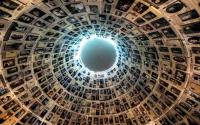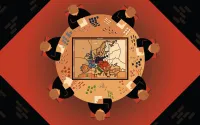3 March 2008The Guardian
European observers this morning condemned Russia's presidential election, won overwhelmingly by Dmitry Medvedev, as "not fair" and a denial of the "democratic potential" of the country's voters.
In a critical assessment that nonetheless fell short of the tougher statement many had predicted, the Council of Europe's parliamentary assembly called yesterday's poll "more of a plebiscite" than a proper democratic election.
Medvedev, Vladimir Putin's chosen successor as president, romped home in the poll. With almost 99.5% of the votes counted, Medvedev had gathered 70.2% support, Russia's central election commission said. He will now take over from Putin on May 7 as Russia's third post-Soviet leader.
Andreas Gross, the chairman of the 22-member delegation of European MPs, said today that although the election result broadly reflected the will of the Russian people it fell short on a number of crucial issues.
"We believe there was not freedom in these elections," Gross said. "The results of the presidential elections … are a reflection of the will of an electorate whose democratic potential was, unfortunately, not tapped."
Gross said there had been "uneven access" to the media during the campaign, a claim already made by Russia's opposition, which has complained of overwhelming bias towards Medvedev by Kremlin-controlled state television.
He also lamented the absence of independent candidates in the poll. The Kremlin deliberately excluded Mikhail Kasyanov, the only genuinely democratic challenger, from the race. "Candidate registration procedures should be simplified to be more inclusive and less cumbersome for independent candidates," Gross said.
Asked by the Guardian whether yesterday's poll was any better than Russia's rigged parliamentary elections in December, which European parliamentarians called "to a large extent free, but not fair", Gross said: "It's still not free and still not fair."
The Council of Europe's parliamentary assembly was the only western observation mission that monitored yesterday's poll. The Organisation for Security and Co-Operation (OSCE) boycotted the election after the Kremlin refused to give its observers visas. The OSCE's absence was "deplorable", Gross said.
He suggested however, that Medvedev would have won the poll even without the vast administrative resources used by the Kremlin to guarantee the landslide. "Even if [our] concerns had been addressed, the outcome of the election … would have been the same," he argued.
Gross conceded that regional and local officials had compelled many public sector workers to vote for Medvedev or risk losing their jobs. "We heard stories from professors and hospital directors that they felt under pressure," he said, adding that the delegation had only visited 100 to 200 of Russia's 96,000 polling stations.
Several European leaders have already telephoned Medvedev - who appeared at a concert in Red Square last night together with Putin - to congratulate him on his victory. It is not clear whether Gordon Brown will call Medvedev today. Sources suggest the prime minister is considering offering Medvedev a fresh start in UK-Russian relations.
Speaking to reporters after his appearance alongside Putin, Medvedev hinted at the influence his predecessor would continue to wield in promising a "direct continuation" of the outgoing president's policies. However, Medvedev stressed, as president he would control foreign policy.
Congratulating Medvedev, Putin said: "This victory will serve as a guarantee that the course we have chosen, the successful course we have been following over the past eight years, will be continued."






